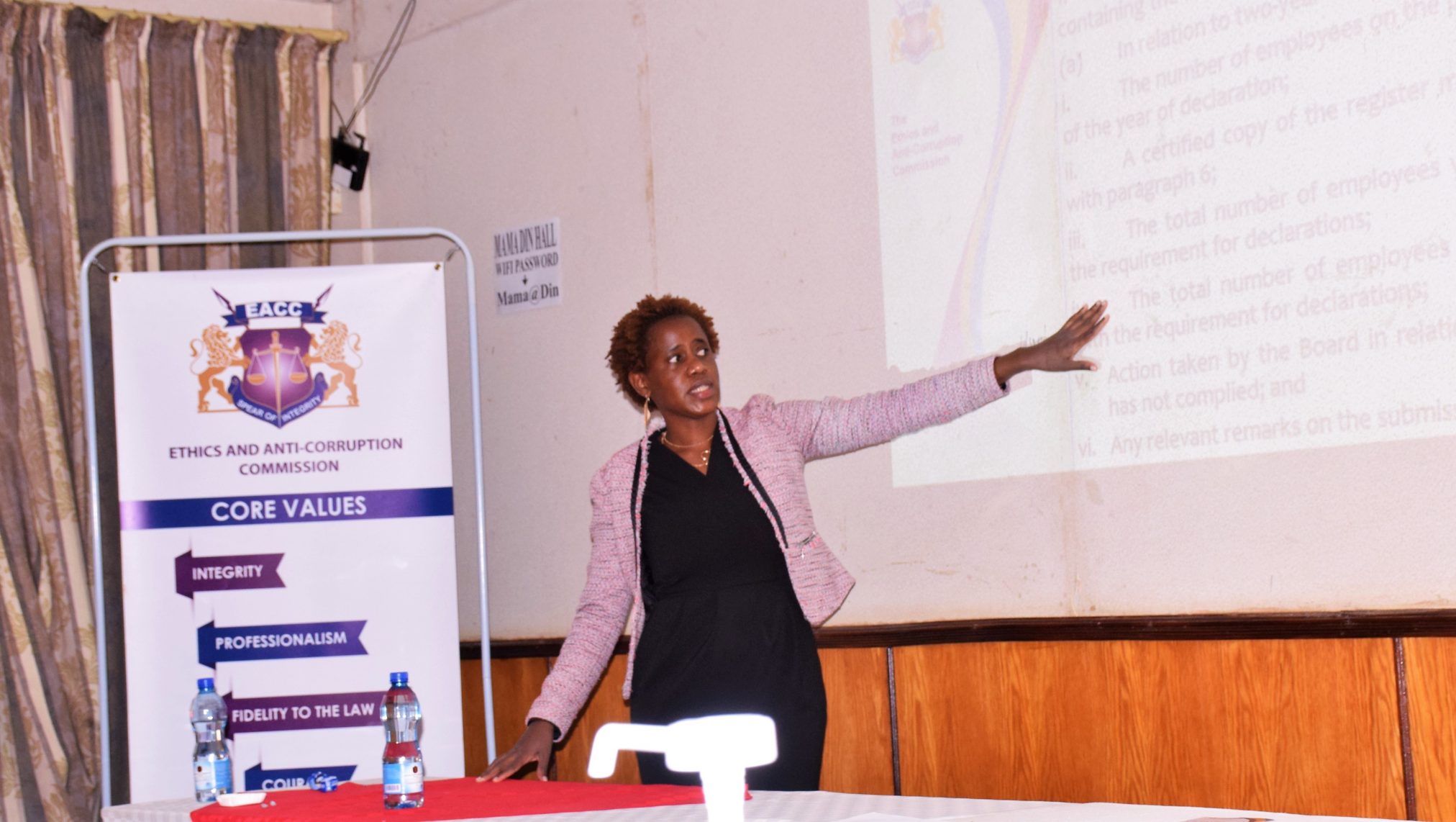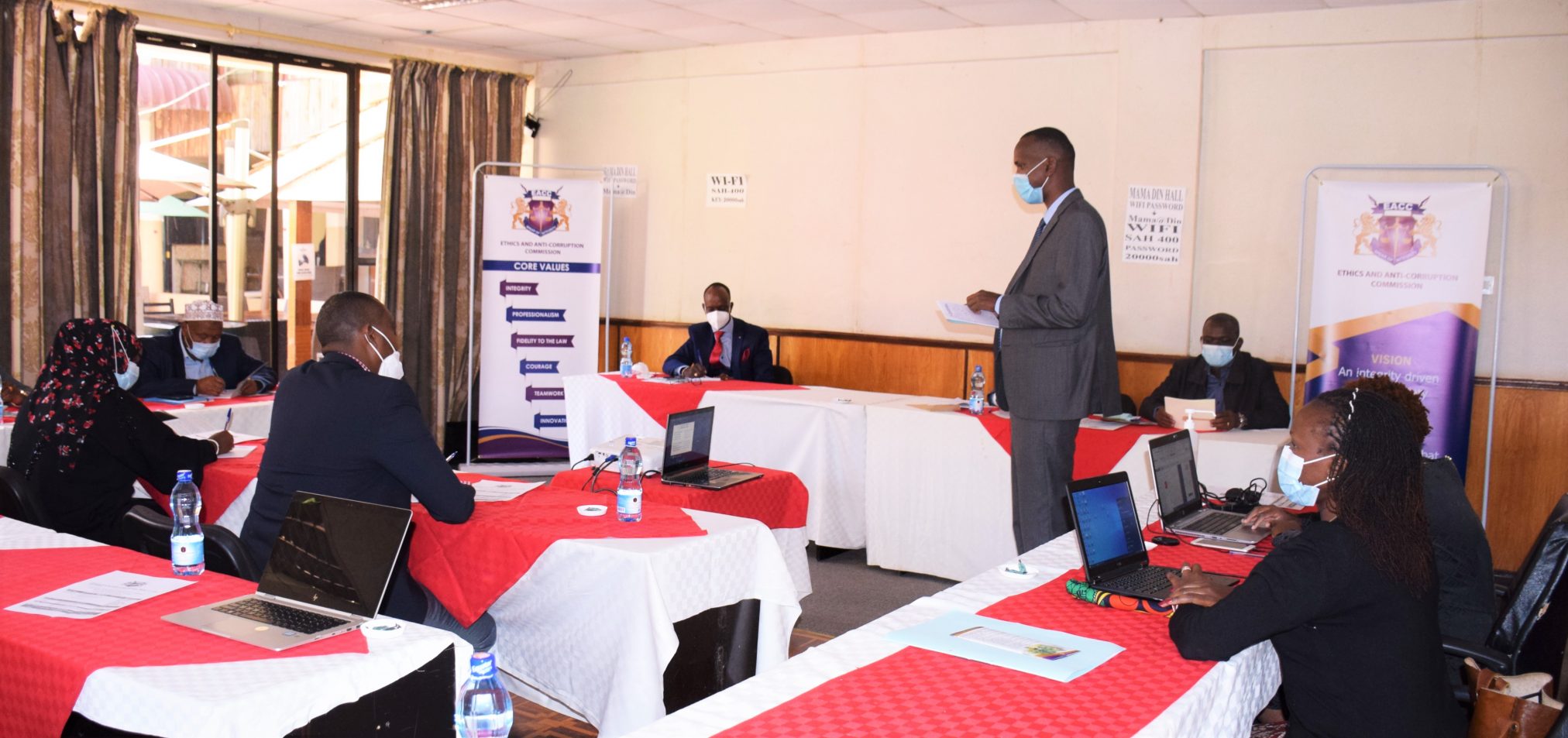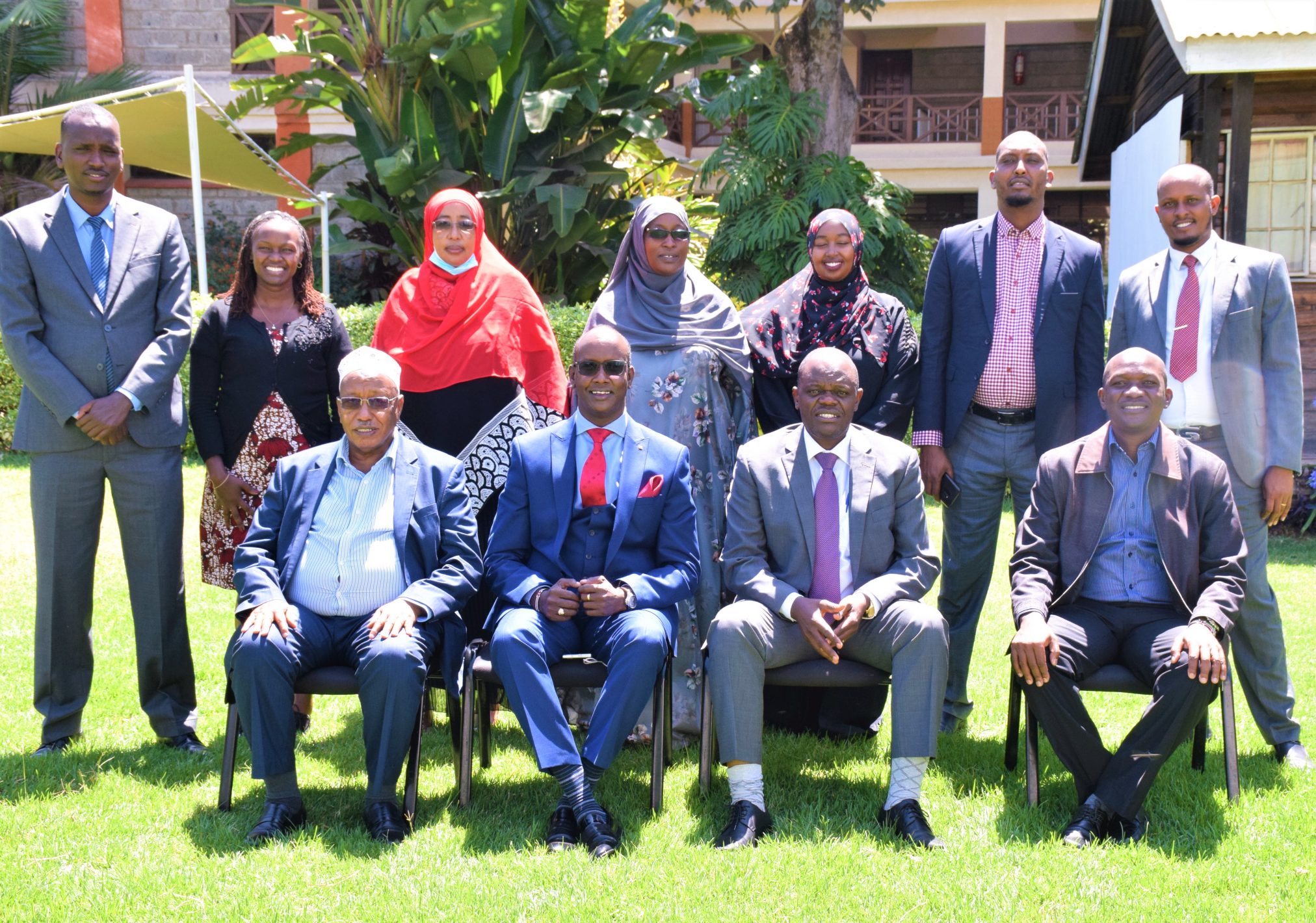Integrity Compliance Training for Marsabit County Public Service Board
17:02:2021: The Ethics and Anti-Corruption Commission (EACC) is carrying out a capacity building workshop for Marsabit County Public Service Board (CPSB) in Nanyuki. This is part of a series of training programmes for oversight bodies in the county governments on integrity compliance under Chapter 6 of the Constitution. The training is aimed at enhancing capacity for promotion of ethical culture, corruption intolerance and good governance.
The Central Regional Head, Charles Rasugu, opened the workshop by calling upon the CPSB to support the county in recruiting the right people to ensure resources are utilized for the benefit of the public. Speaking on behalf of EACC Vice-Chair, Commissioner Sophia Lepuchirit, Mr. Rasugu said: “Putting the right persons in office is the first step in ensuring public resources are protected and utilized for the benefit of Wanjiku.”
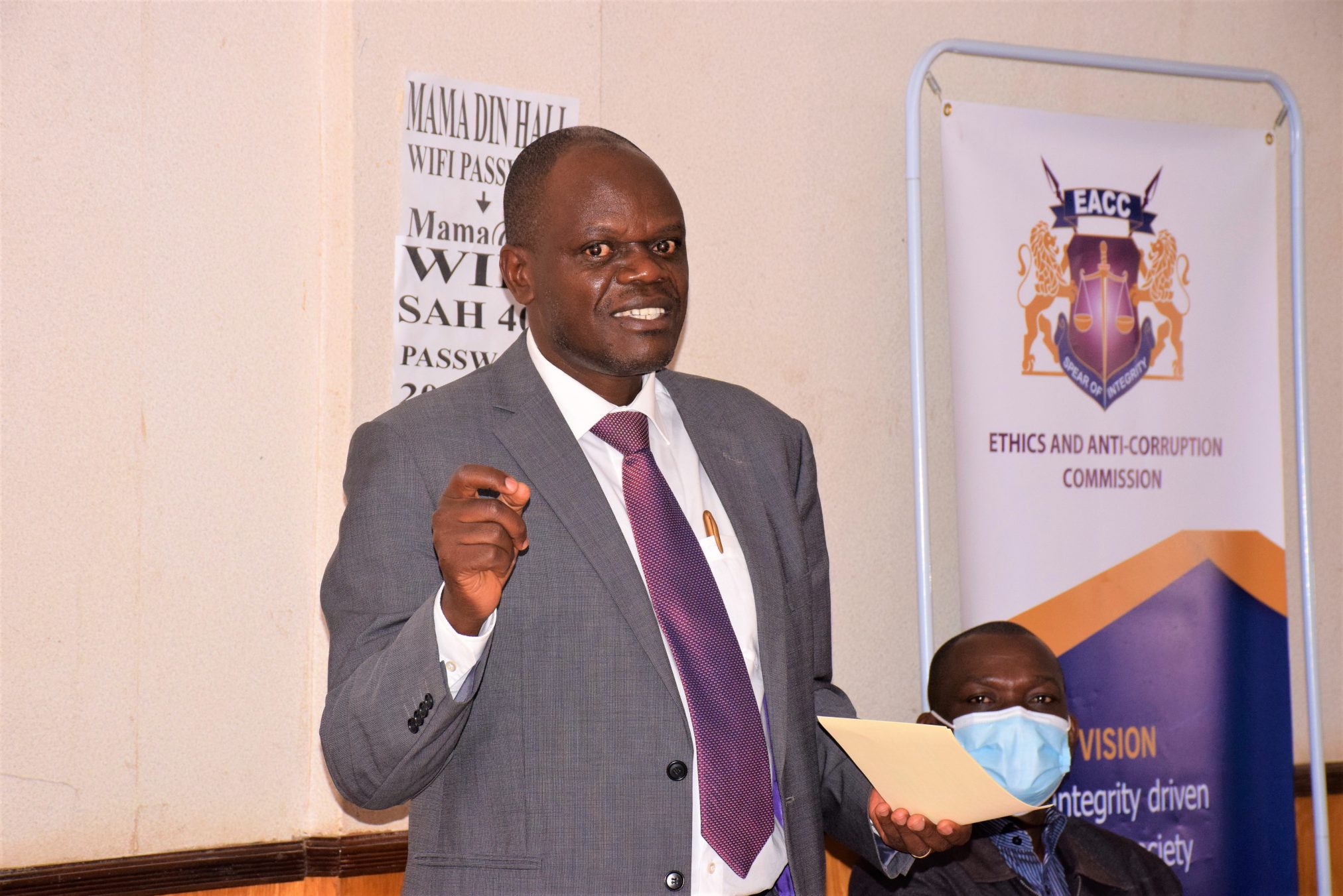
Weighing in on the same issue, the Upper Eastern Regional head, Mr. George OJowi, advised the CPSB to avoid conflict-of-interest situations especially when dealing with employment matters.
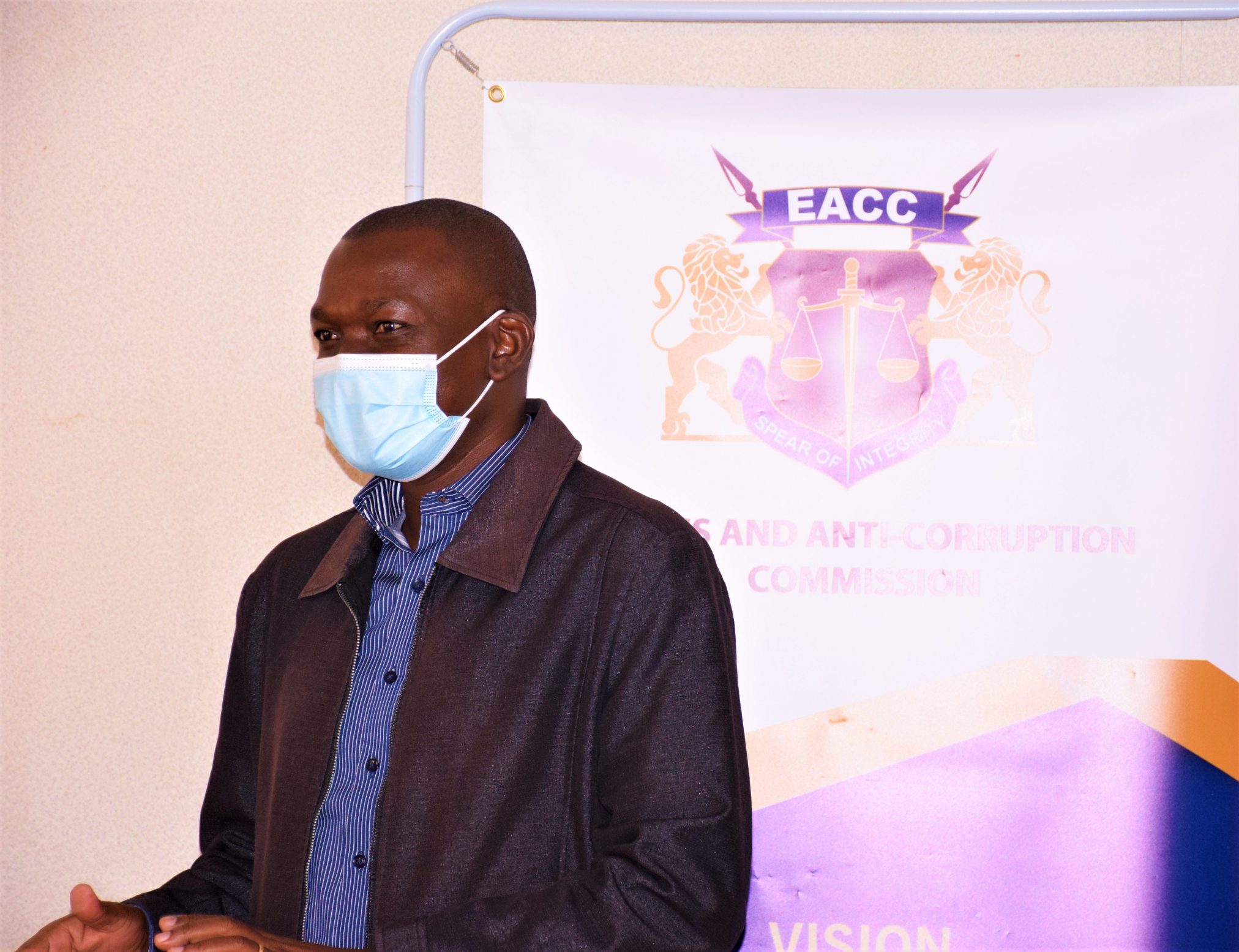
“Have the courage to resist being influenced during recruitment of staff and play your oversight role to help the county pick the right persons for vacant positions in your County,” he said. Mr. Ojowi urged the CPSB to help mainstream integrity and ethics in the procurement departments, which have been identified as one of the county governments’ greatest challenges.
Regarding the Commission’s engagement with county governments, Mr. Rasugu, who delivered the keynote address, highlighted the following activities:
- Investigations into corruption and unethical conduct;
- Taking administrative action against persons found to have violated Chapter 6 of the Constitution;
- Recovery of unexplained wealth from those who have looted from public coffers;
- Undertaking corruption risk assessments to identify and seal corruption loopholes;
- Supporting the development and implementation of codes of conduct and ethics;
- Undertaking integrity verification of persons seeking public appointments; and
- Monitoring declarations of income, assets and liabilities.
Mr. Rasugu also took note of the milestones achieved by the Marsabit County Public Service Board in the implementation of various aspects of Chapter Six of the Constitution, Leadership and Integrity Act (LIA), and related integrity laws that include:
- Development of a code of conduct and ethics for public officers;
- Development and publication in the Kenya Gazette of administrative procedures for management of declaration of income, assets and liabilities;
- Submission of returns for declaration of income, assets and liabilities to EACC;
- Integrity verification of persons seeking appointment to office.
He urged the board members to strictly observe all applicable laws, reminding them that the office they hold is a public trust and the need, therefore, to always serve public rather than private interest. They should also implement what they learn and adjust their daily duties in order to enhance transparency and accountability.
The training ends on Thursday 18th, February 2021.
Functions of county public service boards
The functions of the County Public Service Board, on behalf of the county government, are to:
- establish and abolish offices in the county public service;
- appoint persons to hold or act in offices of the county public service, including in the boards of cities and urban areas within the county and to confirm appointments;
- exercise disciplinary control over, and remove the persons holding or acting in those offices;
- prepare regular reports on how the board executes its functions and submit them to the County Assembly;
- promote in the county public service the values and principles referred to in Articles 10 and 232 of the Constitution;
- evaluate and report to the County Assembly the extent to which the county public service complies with the values and principles referred to in Articles 10 and 232;
- facilitate the development of coherent, integrated human resource planning and budgeting for personnel emoluments in counties;
- advise the county government on human resource management and development;
- advise the county government on implementation and monitoring of the national performance management system in the counties;
- make recommendations to the Salaries and Remuneration Commission, on behalf of the county government, on the remuneration, pensions, and gratuities for county public service employees.





